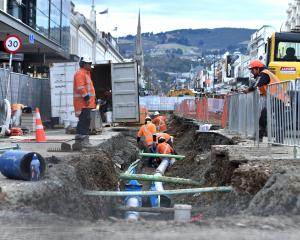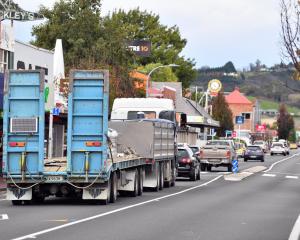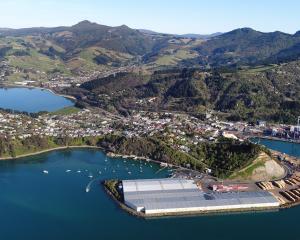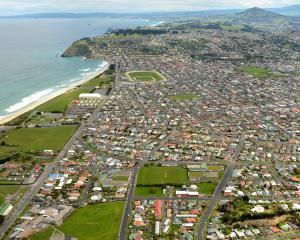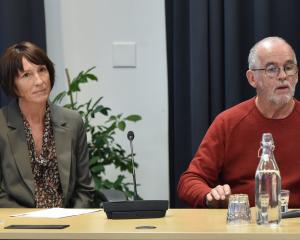The council's infrastructure services committee agreed this week the council should make an initial submission, and further if required, on the Otago Regional Council's proposed plan change 6A (water quality) to the regional plan: water for Otago.
City council water and waste services manager John Mackie told councillors that if the proposals were allowed to proceed unchecked, the social and financial implications for Otago communities would be significant and far-reaching.
"They [the ORC] have some very ambitious aspirations for water quality which are admirable, but we believe it has to be balanced with some practicalities."
While a report to the committee outlined several key proposed changes which council staff objected to, council general manager of operations Tony Avery said he wanted to make it clear water quality was an important issue for the council.
"We're not saying gross discharges are acceptable; it's a matter of where the line is drawn."
The proposed changes to the water plan likely to significantly affect council operations included the restriction or removal of any mixing of water that does not meet water quality standards with watercourses; changes to rules around bridge and culvert placements and sizes; new rules for management of erosion and uncontrolled sediment discharge and a lack of guidelines around them; a lack of details on how or why "good quality water" parameters had been set and that the council might have difficulty complying with the new parameters.
Increased emphasis on prohibited or permitted activity status, particularly the extensive use of prohibited activity status, was considered "radical", given its lack of flexibility.
The test for prohibition, being any measurable effect on the receiving water at the point of discharge, was also an "extremely high and stringent test", the report said.
Several activities undertaken by the council might become prohibited activities under the proposal, including runoff from rural roads into watercourses, any discharge of water that results in flooding, erosion or property damage, composting and land development that might produce uncontrolled sediment runoff.
Resource consents would be required for such activities, and the ORC planned to retain significant control over where it could apply its discretion.
The proposal to require a resource consent to discharge water from a pipeline into a catchment other than the one the water came from - as the council did when the supply of water it took from its Deep Stream and Deep Creek catchments exceeded the demand for water from its Mt Grand treatment plant - could also increase the risk to the long-term security of supply for communities within the district.
Cr Jinty MacTavish said water quality was of fundamental importance for Otago's communities, but expressed her concern the submission also include the environmental and cultural implications of the proposed changes.
Asset planning manager three waters Laura McElhone told councillors consultancy firm MWH was preparing a submission that included input from across council departments, as the proposed changes would have implications for more than just water and waste services.
Other territorial authorities had concerns similar to the council's, she said.
Submissions to the ORC close at 5pm on May 2.



